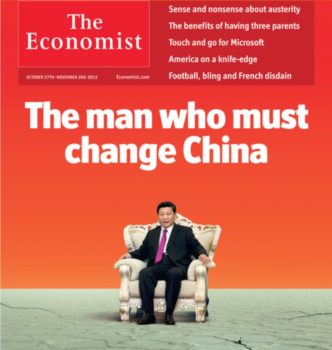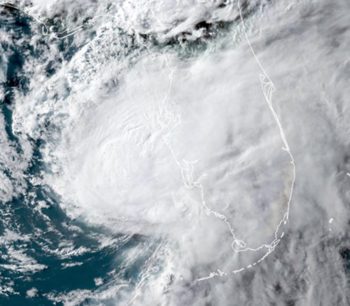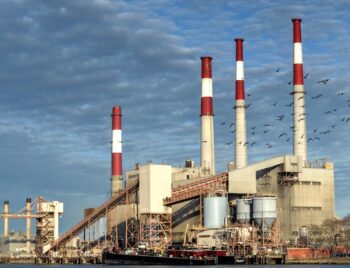
It may have been as early as the 1990s, but certainly by the turn of the century, it was on a steep downward section of the quality mountain.
The thing is the editor-in-chief had discovered globalization – at least, the type feted by the Davos/World Economic Forum crowd. The role of governments was to deliver open markets (even if they were rigged) and open borders.
The intended readers of the magazine became ‘everywhere people’, with ‘somewhere people’ treated with derision.
The Economist was quick to take up the green cause. Week after week, readers were told of the impending environmental disasters should the world fail to restrict the growth of greenhouse gas emissions.
At the same time, emphasis was placed on the commercial benefits that could be secured by investing in the green economy while the virtues of carbon taxes, preferably worldwide, were highly commended.
By this stage, Davos Man had also become a deep shade of green.
Where one might have expected a degree of skepticism and analysis attached to the new green hysteria, the Economist became one of its chief purveyors.
But where was the insight that a great deal of this forced investment was extremely inefficient, with the dollar benefits accruing to the latest version of crony capitalists?
In 2019, an entire issue was devoted to the climate. We were told that we were ‘losing the war against climate change.’ President Xi of China appeared on the cover of another issue, with the heading: ‘the man who must change China [to save the climate]’.
But fear not, a recent cover contained the message: ‘America’s better future: no carbon and no blackouts.’ Coming after the disastrous blackouts in Texas during the recent winter and the intermittent blackouts occurring now in California, that is a big call.
Brexit – OK, anti-Brexit – has been another pet topic for the magazine. Its previous measured tone on matters European was no more.
The Economist tried to fight the will of the British people to be free of the shackles of the European Union. ‘This deal must never be done’ was its motto.
Just think of the impact on the British economy. London’s financial hub would be decimated; living standards would slump, and pharmaceutical and other necessary goods would no longer be available.
Every ludicrous estimate of the negative effects of Brexit on the economy, ranging from those produced by the Bank of England, HM Treasury, and the self-interested consultancy firms, was given massive prominence. The Economist had turned into a propaganda rag.
When the fight was lost, the character of the coverage was apparent from headings such as ‘Facing up to Brexit’ and ‘Doing Brexit the hard way.’
At a broader level, the magazine mourned the decline in globalization, including inventing a new term, ‘slowbolisation’, which appeared on one cover.
The unrelenting campaign against Brexit partly coincided with the Trump presidency in the US. Needless to say, the Economist was bitterly opposed to every Trump initiative, setting the scene for a publishing blitzkrieg.
In fact, the editors actually fessed up to this offensive by declaring in 2017 that:
‘in total, we have published 22 Trump-inspired covers since he announced his presidential candidacy in June 2015 (12 pre-inauguration, and ten since he took office). No doubt Mr. Trump will provide us with many more opportunities for unsettling cover images over the next three years—at the very least.’
(The term ‘unsettling’ is quite misleading; the actual description should be deeply offensive, including one mockup of President Trump sitting in a bathtub spitting dummies.)
Unsurprisingly, another cover read: ‘The one-year-old Trump presidency; is it really this bad?’. According to the captured staff at the Economist, the answer was: yes, yes, yes.
At the time of the last US election, the cover predictably read: ‘Why it has to be Joe Biden.’
Read rest at the Spectator US

















Biden wants to change America to meet the needs of the Globalists
The Economist, like so many publications, has gone downhill for the last 20-30 years. I has been hijacked by socialists and liberals who always destroy everything they touch.
“A tale told by an idiot, all sound and fury, signifying nothing”. Though its does show humanity goes through phases of woke stupidity linked to money.
There is a new woke version of economics here in the age of climate change.
https://tambonthongchai.com/2021/05/16/grantham-institute-climate-change/
The wokerati, largely people with valueless liberal arts degrees or those who wish they had, despise producers and supporters because they actually do something useful. What will happen when the food, water and electricity no longer come to their insular, urban enclaves?